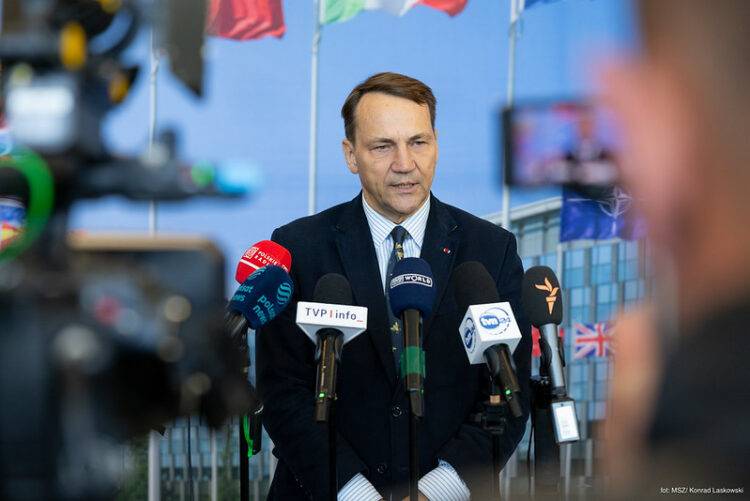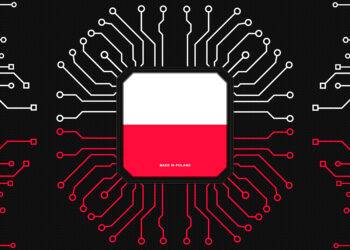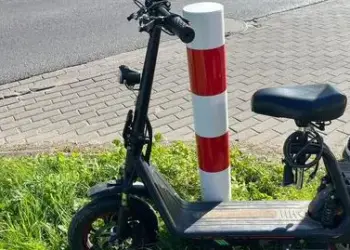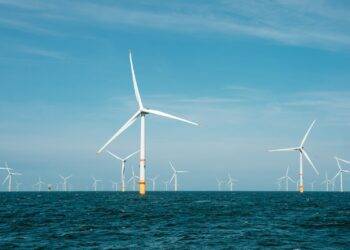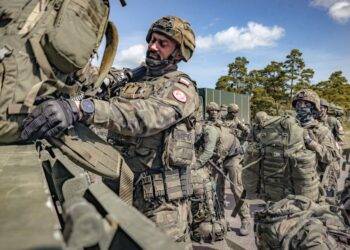Polish Foreign Minister Radosław Sikorski sharply criticized Hungary’s approach to the war in Ukraine, accusing Budapest of lacking “moral clarity” in its dealings with Russia and the broader European response to the conflict.
Speaking at a press conference Monday, Sikorski addressed growing concerns among European Union members about Hungary’s continued reluctance to fully support sanctions against Russia and its ambiguous position on the war. The comments come amid ongoing tensions within the EU over how to respond to Russia’s invasion of Ukraine, now entering its third year.
“Hungary is a country that does not have moral clarity,” Sikorski said, referencing Budapest’s repeated calls for negotiations with Moscow and its resistance to some EU measures aimed at isolating Russia diplomatically and economically. “In times of war, we must be clear about who is the aggressor and who is the victim.”
Hungary, led by Prime Minister Viktor Orbán, has maintained closer ties to Moscow than most other EU nations, frequently calling for peace talks and opposing certain sanctions packages. Orbán’s government has argued that sanctions hurt European economies more than Russia and has advocated for a negotiated settlement to the conflict.
Sikorski’s remarks reflect growing frustration among Poland and other Central and Eastern European countries, which have been among Ukraine’s staunchest supporters. Poland has provided military aid, humanitarian assistance, and diplomatic backing to Kyiv since the start of the war, and has urged the EU to maintain a united front against Russian aggression.
“Europe’s strength lies in its unity,” Sikorski said. “When one member state undermines that unity, it weakens our collective response and emboldens the aggressor.”
The Polish foreign minister’s comments come as EU leaders prepare for another round of discussions on potential new sanctions against Russia and additional support for Ukraine. While most member states have backed tougher measures, Hungary has repeatedly used its veto power to block or delay decisions, citing national interests and the need to protect its economy.
Orbán’s government has also faced criticism for its continued energy ties with Russia, including long-term gas contracts and cooperation on nuclear energy projects. Critics argue that these relationships undermine EU efforts to reduce dependence on Russian energy and send mixed signals to Moscow.
In response to Sikorski’s comments, Hungarian officials defended their position, insisting that their approach is pragmatic and aimed at protecting Hungarian citizens from the economic fallout of the war. “Hungary stands for peace and the interests of its people,” a government spokesperson said. “We believe that dialogue, not escalation, is the path to ending this conflict.”
Despite these assurances, Hungary’s stance has drawn rebukes from several EU partners, who argue that unity is essential to countering Russian aggression and supporting Ukraine’s sovereignty.
Analysts say the rift between Poland and Hungary, once close allies within the EU’s conservative bloc, highlights the shifting dynamics in Central Europe since the outbreak of the war. While both countries have often clashed with Brussels over rule-of-law issues, their divergent approaches to Russia have strained their relationship.
“Poland and Hungary used to be on the same page on many issues, but the war in Ukraine has changed that,” said Anna Słojewska, a political analyst based in Warsaw. “Poland sees Russia as an existential threat, while Hungary is more focused on its own economic interests.”
As the conflict in Ukraine drags on, EU leaders face the challenge of maintaining cohesion in the face of differing national priorities. Sikorski’s pointed remarks underscore the stakes for the bloc as it seeks to balance solidarity with Ukraine against internal divisions.
“The world is watching how Europe responds,” Sikorski said. “We cannot afford ambiguity when it comes to fundamental values and the defense of our continent
ADVERTISEMENT

